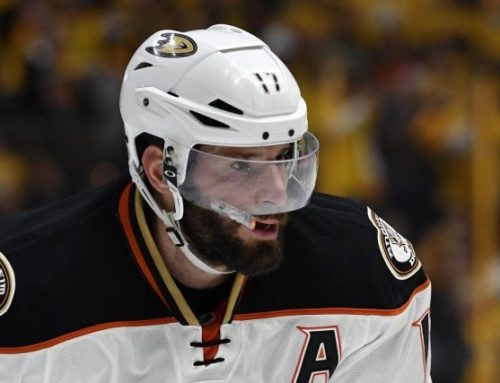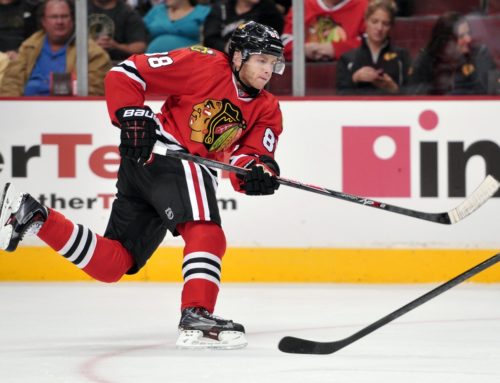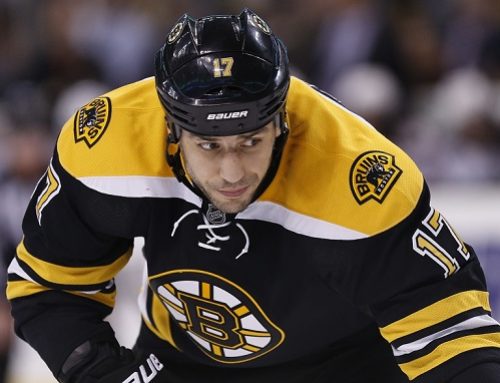
As they say back where I'm from around this time of year, "Time to saddle up and ride, boys." Yes, the 2010 Stanley Cup Playoffs are here and that means my second-annual Playoff Beast Tracker is back! Just like last year, I'll update this chart on a nightly basis with stats that truly matter when it comes to analyzing goalies in the postseason.
If I had to compare the goaltending heading into the 2010 Stanley Cup Playoffs to anything, it would probably be trench warfare. Some of these goalies won't look pretty, but they will still win games and effectively help their team win the Cup. It will be a dirty, lung-bursting job for many young and inexperienced goalies, but it will still get done, as there are seven goalies with no playoff experience, including five of the eight "starters" in the Western Conference.
Of these seven goalies, Jimmy Howard and Antti Niemi intrigue me the most. Both have been the biggest fantasy surprises of the year, but both weren't too pretty to watch. They both have visible flaws in different ways, and now their development, confidence will be revealed in massive amounts. Every save in the playoffs is a morsel of experience and every win is a monumental occasion, which means their futures are literally shaped by these games. And the more you watch them play, the more you can calculate their fantasy impact with precision.
Go down the list in the Western Conference and the inexperience nearly blinds you. Five of the eight "starters" have zero experience. Evgeni Nabokov and Roberto Luongo are clearly the most experienced, while Ilya Bryzgalov has also stolen at least one series before. Howard, Niemi, and Pekka Rinne could be dangerous, but how they handle the pressure of the playoffs, and whether or not they can elevate their game another step or two remains to be seen.
Then there's the dynamic of goaltenders like Craig Anderson and Jon Quick. Both had break-out seasons in regards to their ability to be a workhorse and a starter for a full season. But both faded and struggled down the home stretch, or they at least failed to play at the same level as before the Olympics. And now both of them will be facing the two best teams in the Western Conference. Will all of those minutes equal exhaustion, or the secret to a good rhythm?
Keep in mind that Anderson sat for two games in a row last week, while Quick played on Saturday night and Erik Ersberg closed out the season on Sunday. To give you an idea of just how much rubber Anderson faced, it was the 7th most shots a goalie has faced since 1982. He started 71 games total, a franchise record that not even the great Patrick Roy came close to reaching. So when I see that Anderson is going up against Nabokov, who is one of the best workhorses in the league, I can only smile in joyful anticipation. Will the goalie that has experience playing 71 games a season overshadow the goalie that has never played 71 games in a season?
All of these questions regarding workload comes on the heels of a more grueling and strenuous regular season than any other in the last 6-8 years. Chalk that up to the Olympics, of course, as the condensed schedule weakened every team at least in some way. And what will that dynamic do to the scales of fate? Some goalies went to Vancouver, some stayed at home. Will one or two games of rest result in any kind of advantage for the overworked goalies?
It might be hard to discern the truth, but there will be moments in the first round where you will recognize a lack of focus or intensity. Glaring, costly mistakes and bad decisions will be made and that will lead to many discussions about just how much they played during the year. With so many fine lines between success and failure, that is what makes goalie analysis in the playoffs so amorphic, intriguing and entertaining. Regardless of how they look and how they execute, one or two of these inexperienced goalies will end up being molded into a long-term winner.
When it comes right down to it, goaltending success in the playoffs will be about timeliness and durability. Games will go into overtime, shot totals will be high and it will only add to the physical drain that has clearly impacted the play of many goalies listed above. If the shot totals are low, the mental drain will be the factor. All seven goalies will react differently to the pangs of pressure that they have never faced before.
When I look at the Eastern Conference, I can't help but get excited about Tuukka Rask butting heads with Ryan Miller. Rask helped the Bruins clinch the eighth and final playoff spot by the skin of his teeth with a 4-2 win over the Hurricanes on Saturday afternoon. He was extremely solid in the game, allowing two fairly quick goals in the second period, but similar to his foe in the first round, Rask displayed quality composure and made a number of key saves in the third period to keep his team in front. Miller's season was the best of his career, but still couldn't trump the stats posted by Rask.
Every goalie has a story, and that is why I basically toss stats around like a ticket after a hockey game. The chart below provides you with a wealth of information, but to me, they mean nothing. Stats don't tell a story. Words do.

Remember what the Beast Tracker stands for. It's not just a random name I pulled out of nowhere. Goaltenders (and players) literally transform into beasts this time of year. They find another level of intensity and speed. The games are glorious and any goalie can step into the crease and pull out insane appearances at any given moment in time.
My only question to you is whether or not you will be there to watch it all goes down.





 SEA
SEA CHI
CHI OTT
OTT EDM
EDM DAL
DAL STL
STL L.A
L.A ANA
ANA FLA
FLA CBJ
CBJ
